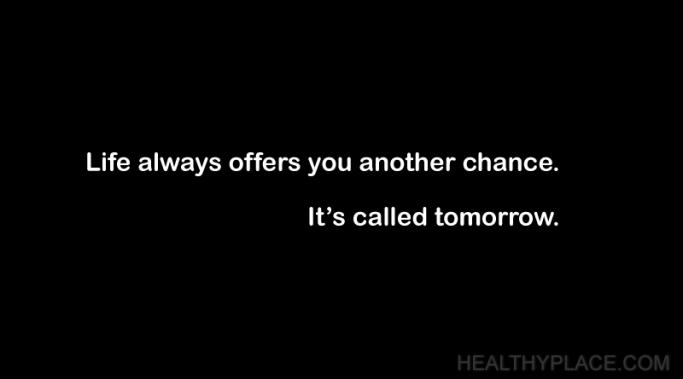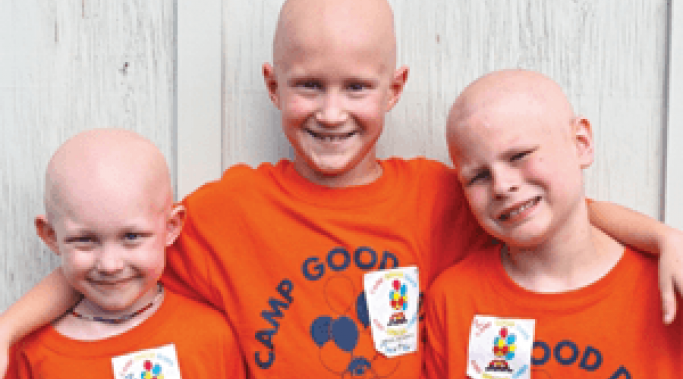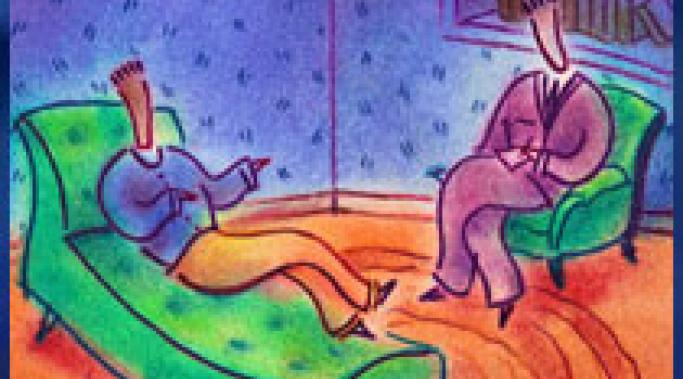Blogs
Explaining depression to a friend can be scary and difficult. A couple of weeks ago, I wrote about talking to somebody about depression. Telling family and close friends about your depression has its challenges, but telling friends and acquaintances can have its challenges too – especially when they are people you know from work.
Why would you even bother telling an acquaintance about your depression? What business is it of theirs? Good questions.
In this audio blog, a paragraph from a chapter is read that brings forward the issue of Angel vs. Devil. Below is the general idea for the novel, Noon, that I recently published. One character is in the mental health unit at a big hospital in a little town where she receives treatment.
And yes, she self-harms.
There's always tomorrow. After some tough days at work, I often find myself worrying about what I could have done better. Same thing goes for parenting. Some days I really mess up with Bob. It could be in the way that I talk to him or if I forget something important for him. I put pressure on myself to do my best both professionally and personally. Sometimes, I forget that I don't have to.
Is it a toxic relationship? Is she a friend or frenemy? It’s a question that many adults and adolescents ask themselves when thinking about those in their social circle. No, it’s not the movie Mean Girls, and sadly, toxic friendships don't necessarily end when you depart high school. Many times, people put up with these toxic friends because they are tough to let go. But in the end, these toxic friends take a huge toll on your self-esteem.
Are you afraid to be needy? Why is that?
Many people have neediness anxiety: aka “worry about being too needy.” Being “too needy” is generally frowned upon in our individualistic culture. And when we--the appropriate, regular human beings we are--desire some help or company, we mistakenly think something is way wrong with us.
We make all kinds of excuses why the other person can't handle our problem on top of theirs; they are too busy or too important to care about us. These are all made up in our mind.
Psychotic episodes are not random ideas, thoughts and noises within our mind. They are stories that follow certain patterns and sequences that are logical to us at the time. There is nothing "disorganized" about a psychotic episode. To prove this point, I have written several of my psychotic episodes onto paper and turned them into fictionalized stories. Some of these have been published by alternative magazines, while others still sit on my shelf. Turning my psychotic episodes into an art has been therapeutic and helped me to confront my horrifying past.
Sometimes, people telling you to just stop cutting or burning or scratching is not enough motivation to actually stop the self-injury behavior. It is like asking someone not to text their ex-boyfriend or ex-girlfriend when they’re staring at a message. It is something they should not do, but they can’t help themselves, so they do it.
It is much more difficult to find a motivating factor to help stop self-harm than many believe. Of course, there is therapy and family and friendships (self-injury treatment), but in the mind of a severe self-injurer, sometimes that is not enough.
It often takes time to find motivation to begin self-harm recovery and end this addictive struggle with self-harm.
Healing in the trauma disorders and addictions means real and permanent major change, and that's usually neither cheap nor easy. Persistence, in the pursuit of healing, is very often the single most important factor predicting success.
There's a lot of initial confusion that can exist for a caregiver during a mental health crisis situation. In my case, the lack of support received from the first responders in that situation was eye-opening and left me confounded.
My name is Douglas Baker. I'm a former caregiver to a woman who suffers from schizoaffective disorder - my ex-wife. If you have been caring for a family member with a mental illness for a while, you probably can relate to my story. If you're just getting started, here's a heads-up.
Recently, I took the bus home. Normally, that's not "interesting" but this trip was because the driver got lost. Seriously. She even asked passengers for directions on her route. So what does this have to do with therapy? Plenty. If you get an unqualified or inexperience therapist, you may end up wandering just like this bus driver did.









